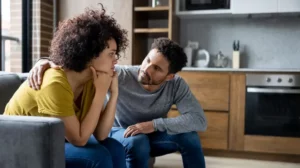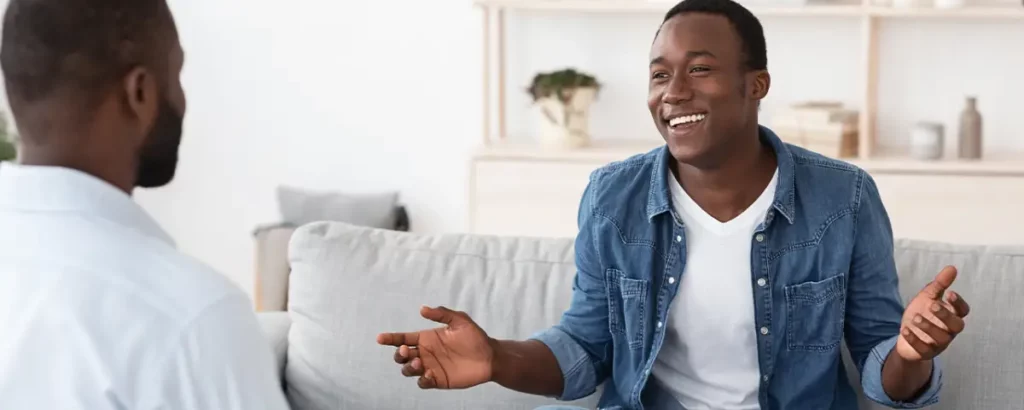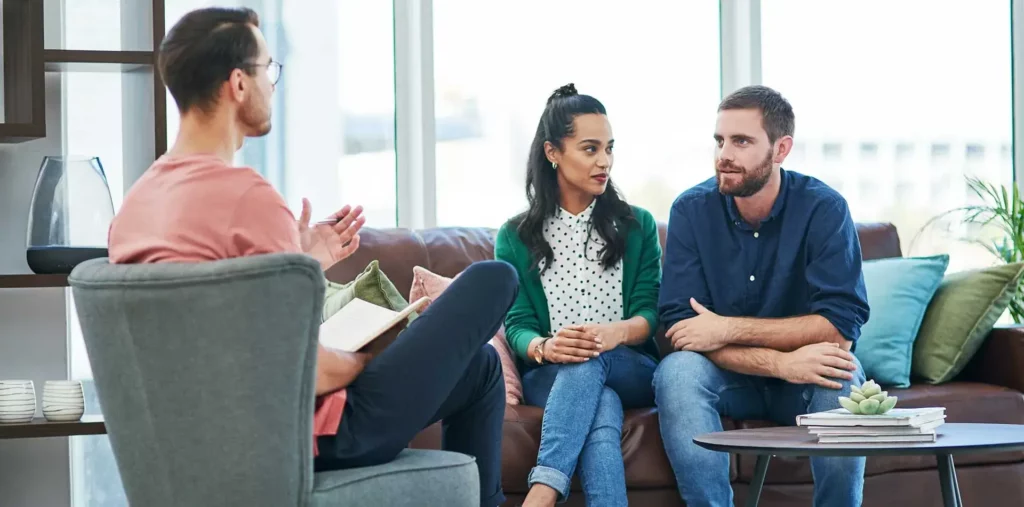Entering into couples counseling can be a significant step in healing, transforming, and strengthening your relationship. While the therapist guides this process, the effectiveness of counseling also largely depends on the mindset and efforts of the couple. This guide aims to provide you with valuable insights and tips to maximize the potential benefits of couples counselling, helping you to achieve your relationship goals more effectively.
Contents
Understanding the Purpose and Expectations of Couples Counselling
 Couples counseling, also known as couples therapy or relationship counseling, is a type of psychotherapy that helps partners improve their relationships. It offers a supportive platform where couples can explore and address issues causing distress, dissatisfaction, or conflict, with the ultimate goal of enhancing relationship health and happiness.
Couples counseling, also known as couples therapy or relationship counseling, is a type of psychotherapy that helps partners improve their relationships. It offers a supportive platform where couples can explore and address issues causing distress, dissatisfaction, or conflict, with the ultimate goal of enhancing relationship health and happiness.
One of the first steps to successful couples counseling is understanding its purpose. This therapy isn’t a magic pill that will solve all relationship problems instantly. Instead, it’s a process that provides tools and techniques to help you and your partner effectively communicate, understand each other better, and resolve conflicts in a healthier manner.
Setting realistic expectations is another critical aspect of couples counseling. Progress may not be linear and quick, as each partner brings unique perspectives, feelings, and concerns to the table. It’s normal to experience ups and downs, and there might be times when issues seem to worsen before they get better.
Remember, couples counseling is a shared responsibility. It’s not just about pointing fingers or assigning blame, but rather working together as a team to foster a healthier, happier relationship. Therefore, it requires the commitment and active involvement of both partners. Through couples counseling, you can deepen your emotional connection, improve mutual understanding, and build a stronger, more fulfilling partnership.
14 Effective Couples Counselling Tips For A Positive Change

Here are 14 Couples Counselling tips that can guide you on this journey, helping you to make the most out of your counseling experience and move towards a healthier, stronger relationship.
- Be Open-Minded: Enter each session with an open mind. Be willing to listen, understand, and explore new perspectives, ideas, and strategies suggested by the therapist or your partner.
- Maintain Honesty: Honesty is paramount in counseling. Be truthful about your feelings, concerns, and expectations. The more honest you are, the more your therapist can help.
- Express Rather Than Suppress: Allow yourself to express your emotions freely. If something bothers you, express it rather than suppress it. Bottled-up feelings can cause unnecessary conflict.
- Practice Active Listening: Active listening is more than just hearing. It involves understanding and acknowledging your partner’s perspective, even if you disagree.
- Stay Respectful: Ensure to maintain respect for your partner at all times. Avoid name-calling, finger-pointing, or blaming, as these behaviors can hinder progress.
- Engage in Self-Reflection: Use counseling as a platform for self-growth. Understand your feelings, reactions, and behaviors, and see how you can improve them.
- Work on Communication: Effective communication is key. Learn and use healthy communication techniques suggested by your therapist to improve understanding and connection.
- Be Patient: Change takes time. Be patient with yourself, your partner, and the process. Progress may be slow, but it’s often lasting.
- Embrace Vulnerability: Allow yourself to be vulnerable. It can help in creating emotional intimacy and understanding between you and your partner.
- Follow Through on Actions: Carry out the actions, exercises, or homework your therapist recommends between sessions. They’re designed to help you apply what you’re learning.
- Take Responsibility: Acknowledge your role in relationship issues. By taking responsibility, you move from being a passive recipient to an active participant in the healing process.
- Stay Committed: Stick to your therapy sessions and the plans you make during them. Consistency and commitment are crucial for lasting changes.
- Value Your Partner’s Efforts: Recognize and appreciate your partner’s efforts in the process. It can boost morale and strengthen your bond.
- Seek Support Outside Therapy: Reach out to support groups, friends, or family to talk about your feelings and experiences. Having a supportive community can help during the counseling process.
The Benefits of Going for Couples Therapy

Couples therapy can be a powerful tool to improve and strengthen relationships. It offers numerous benefits that can lead to increased understanding, better communication, and overall enhancement of relationship satisfaction. So, here are some of the key benefits of going for couples therapy:
- Improved Communication: Couples therapy provides tools and techniques to enhance your communication skills. By learning how to effectively express your thoughts, feelings, and needs, you can foster better understanding and avoid misunderstandings.
- Conflict Resolution: Therapy teaches healthy ways to navigate disagreements. You’ll learn to address conflicts constructively rather than destructively, ensuring that both partners feel heard and valued.
- Enhanced Emotional Intimacy: Opening up about vulnerabilities and fears can deepen your emotional connection. Couples therapy provides a safe space for such disclosures, leading to enhanced emotional intimacy.
- Understanding Relationship Patterns: Therapists can help identify recurring patterns in your relationship, allowing you to understand why certain issues keep arising and how to address them.
- Personal Growth: Couples therapy isn’t just about your relationship—it’s also about personal growth. It can help you gain insights into your behaviors, reactions, and emotional triggers, which can lead to self-improvement.
- Rebuilding Trust: If trust has been damaged due to issues like infidelity, therapy can guide you through the healing process. It can aid in rebuilding trust and fostering forgiveness.
- Preventing Future Issues: By equipping you with essential relationship skills and insights, couples therapy can help prevent future issues, contributing to the longevity and health of your relationship.
- Greater Relationship Satisfaction: By addressing issues, enhancing communication, and strengthening your emotional bond, couples therapy can lead to greater relationship satisfaction and happiness.
- Enhanced Self-Esteem: As you work through relationship issues and personal challenges, you may experience an increase in self-esteem and personal empowerment.
Conclusion
In conclusion, couples therapy is an instrumental resource that can help navigate the complexities of your relationship, foster healthier communication, and promote emotional growth. By understanding its purpose, setting realistic expectations, and implementing the couples counselling tips suggested, you can significantly enhance the effectiveness of your counseling sessions.
Remember, the journey of couples therapy is not always smooth, but the outcomes can be profoundly rewarding. Through commitment, openness, and patience, you can achieve a stronger, healthier, and more satisfying relationship.
Therefore, at CoupleMantra, we offer a variety of counseling services tailored to meet your specific needs. If you have any queries regarding Online Couple Counseling experienced therapists at CoupleMantra can help. Book a trial couple therapy session


